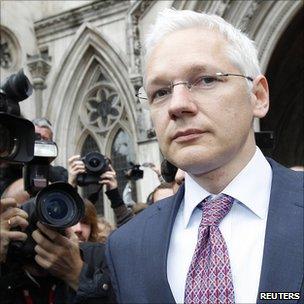Hackers call for PayPal boycott
- Published

Two high profile hacker groups have called on their followers to boycott PayPal over its continued refusal to handle donations to Wikileaks.
Anonymous and Lulz Security issued a joint statement asking supporters to withdraw funds and close their accounts.
PayPal froze Wikileaks' assets after it released stolen US diplomatic cables.
The company declined to comment on the boycott because of ongoing legal action over attempts to hack its website.
Launching the campaign, LulzSec and Anonymous wrote in an online posting: "PayPal continues to withhold funds from WikiLeaks, a beacon of truth in these dark times.
"By simply standing up for ourselves and uniting the people, PayPal still sees it fit to wash its hands of any blame, and instead encourages and assists law enforcement to hunt down participants in the AntiSec movement [the campaign to highlight weak IT security]."
Going straight
The campaign marks something of a departure for LulzSec and Anonymous, which are both known for stealing and releasing private information from websites with poor security.
The groups are at pains to emphasise that their current protest is being waged through legal means.
More than 100 million people around the world use PayPal to make online payments.
The company incurred the wrath of online activists, including Anonymous and Lulz Security, when it appeared to bow to pressure from the US government to stop handling donations to Wikileaks in December 2010.
Shortly afterwards the site suffered several denial of service attacks.
Earlier this month - in July 2011 - 14 people in the US and Europe were arrested in connection with the attacks.
Although it would not discuss the boycott specifically, in a statement PayPal told BBC News: "As we state in our privacy policy, PayPal works with law enforcement or government officials if we receive a subpoena or court order; if we need to do so to comply with law; or if we believe in good faith that illegal activity has occurred."
- Published20 July 2011
- Published8 December 2010